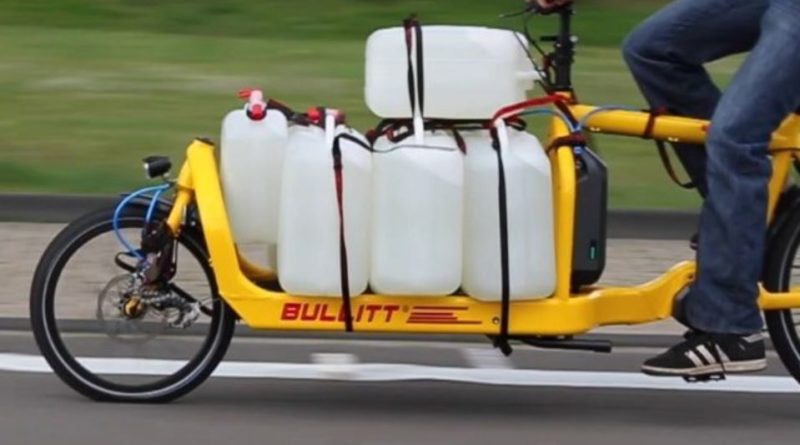Think tank calls for cargo bike parking and markets delivered by cycle
A sustainability and smart city specialist think tank has made a string of policy recommendations, including delivery of London markets by cargo bike, in a bid to enhance public interest in the practicalities of utility cycling versus defaulting to car use.
The 26-page Fare City assessment, authored by architect and former public policy shaper Charles Critchell draws on a body of pre and during Covid research, including the meticulous analysis of cargo bike delivery businesses like PedalMe, which famously employs its own data scientist to develop the firm’s inner city efficiency.
Its recommendations centre on how to engage the public in personal use of cargo bikes for their day-to-day lives, suggesting that more nuanced means could be more successful in generating natural interest, rather than direct promotion.
Among suggestions in the recommendations panel the idea is mooted that ‘Clean Air Markets’ could be a plausible way to engage the public in thinking about how they travel to and from such locations.
The idea centres on the delivery of the market infrastructure and goods taking place by cargo bike. With emphasis placed on the low-emission credentials of delivering an entire marketplace by bike, the paper suggests the public may naturally thereafter question what journeys they could transfer to bikes and cargo bikes.
“Buy-in from local authorities, in addition to cargo bike suppliers, operators, and users, would be prerequisites in ensuring that the market is widely promoted, serviced, and attended,” concludes this recommendation.
Factoring in both the cost and commitment of switching many journeys to cargo bike the author stresses that, as with any form of cycling, supporting infrastructure is crucial to public interest; including parking spaces specifically such vehicles.
“Fare City recommends that boroughs must make access to cargo bike hire and purchase easier, while providing improved levels of infrastructure to facilitate their use,” starts the recommendation.
More boroughs must aspire to match schemes seen in Waltham Forest, Ealing and Camden, which all run cargo bike schemes, it is written and alongside boroughs should begin to assess on street parking at key destinations.
A final recommendation relates to Covid-19 policy, specifically asking city leaders to stand resolute in the face of opposition in passing pro-cycling measures.
“This includes making cycling safer by delivering improved infrastructure, making cycling more accessible by providing additional financial initiatives, and making cycling more inclusive by challenging perceptions towards those who cycle in London and why – via mainstream media campaigns and public events,” writes the policy paper conclusion.



